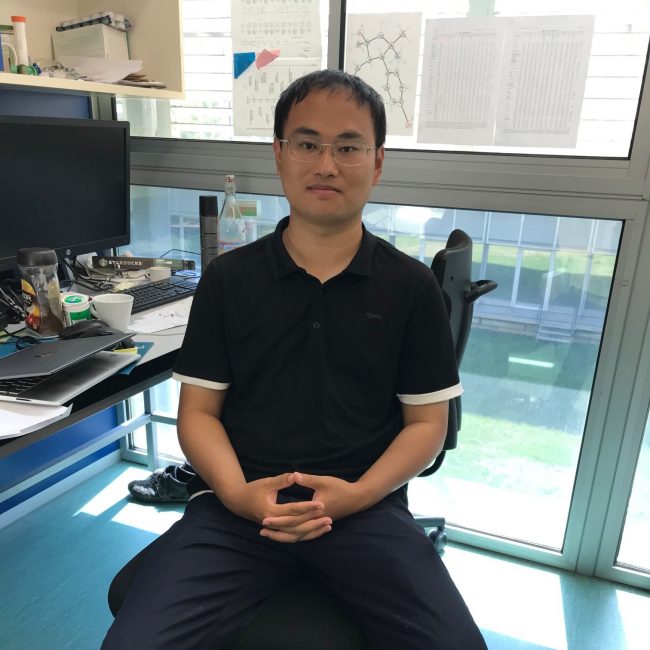Diyuan Li obtained his BSc degree in pharmacy at China Pharmaceutical University (2014) and MSc in Chemistry from The University of Manchester (2016). He has two industrial experiences: synthesis of Tofacitinib, a new drug of Pfizer at Jinlixin Medical Co.Ltd. (2014) and drug intermediate synthesis and scale up at Peptech corp., China (2017). He holds a PhD degree in organic chemistry from University College London (Dr Wilden’s group), where he acquired a great deal of experience with radical chemistry and electrosynthesis. From July 2021 to May 2022, he was a postdoctoral research fellow at University of Nottingham, where he focused on visible light induced peptide and protein modification. Dr. Li implemented the ELECTRO-ASYMMETRIC project at ICIQ until February 2023, before moving to Università di Bologna, where he will continue working on it until the end of July 2024.
Dr. Diyuan Li
Prof. P. Melchiorre
Electrochemical stereoselective radical cascades for accessing natural-like compounds

From 01/08/2022 to
28/02/2023
ELECTRO-ASYMMETRIC
dentifying successful lead drug candidates is a significant and current challenge to society. The ELECTRO-ASYMMETRIC project seeks to provide some solutions through assisting the development of more effective drug discovery technologies. Specifically, we aim to use electricity-driven organocatalytic cascade processes for the stereocontrolled synthesis of chiral lactones and polyfunctionalized heterocycles, which are common motifs in biologically active molecules. Asymmetric organocatalysis and electrochemistry, two powerful strategies of modern chemical research, have extraordinary potential for sustainably preparing the novel organic molecules required for driving innovation in the pharmaceutical industries. However, the control of enantioselectivity in electrochemical radical processes poses a fundamental scientific challenge. ELECTRO-ASYMMETRIC asks whether asymmetric organocatalytic electrochemical cascades could be an effective tool for rapidly synthesising novel chiral nature-inspired building blocks with high stereocontrol. The chiral molecules prepared in this project will be screened for biological activity in a multidisciplinary collaboration with Janssen, increasing the probability of success in identifying successful drug candidates. This fellowship brings a new industrial collaboration to the host institution, and transfers expertise of advanced techniques in asymmetric catalysis to the candidate and knowledge of electrochemistry to the host group. The project’s multidisciplinarity and intersectoral nature will broaden the fellow’s competencies and will place him in a competitive position for his next career move.
![]() This project has received funding from the European Union’s Horizon 2020 research and innovation program under grant agreement 101062393
This project has received funding from the European Union’s Horizon 2020 research and innovation program under grant agreement 101062393